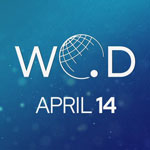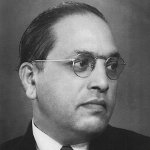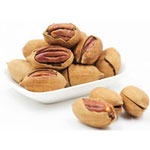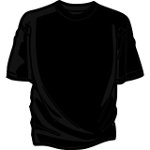Holidays Calendar for April 14, 2016
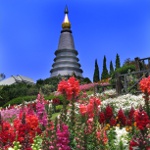 Public Holidays →
Thailand,
Laos,
Maldives,
India,
Nepal,
Bangladesh,
Myanmar,
Sri Lanka,
Cambodia
Public Holidays →
Thailand,
Laos,
Maldives,
India,
Nepal,
Bangladesh,
Myanmar,
Sri Lanka,
Cambodia
New Year in South and Southeast Asia
Most people think that Asian countries only use lunar (or, to be more precise, lunisolar) calendars. While this is true to some extent, there are exceptions. For example, the date of the traditional New Year’s festival in many countries of South and Southeast Asia is based on the entry of the sun into the constellation of Aries. In modern times, it usually occurs around April 13 in the Gregorian calendar.
World Quantum Day is observed annually on April 14. Launched by quantum scientists from around the world, it aims to help the general public understand quantum science and technology and to engage them in discussion.
National Dolphin Day is observed annually on April 14. The holiday was created to celebrate one of the most intelligent aquatic mammals and raise awareness of the threats that dolphins face and the importance of dolphin conservation.
April 14 is Pan American Day, a holiday that commemorates the First International Conference of American States.
April 14 is Day of the Georgian Language. It has been celebrated since 1990 in commemoration of demonstrations against changing the constitutional status of languages in Georgian SSR that took place in 1978.
Dhivehi Language Day is a Maldivian holiday dedicated to the country's national language. It is celebrated on April 14, marking the birthday of Husain Salahuddin, an influential Maldivian author.
N'Ko Alphabet Day is celebrated on April 14 in some West African countries, where the Manding languages are spoken. It marks the anniversary of the date the alphabet is believed to have been finalized.
On April 14, citizens of India celebrate Ambedkar Jayanti – the birthday of Bhimrao Ramji Ambedkar, outstanding lawyer, politician, and social reformer who was the principal architect of the country's constitution.
Anfal Genocide Memorial Day is an official remembrance day in Iraqi Kurdistan, an autonomous region in Northern Iraq. It is dedicated to the victims of the genocide committed during Saddam Hussein’s rule.
The Baptism of Poland Day (Święto Chrztu Polski) is celebrated every year on April 14 to commemorate the baptism of Poland, which is conventionally dated to April 14, 966. It is a holiday, but not a work-free day unless it falls on a weekend.
A lot of food days celebrated in the United States are dedicated to foods and dishes that originated elsewhere, but National Pecan Day is as American as it gets because the pecan tree is native to the United States and Mexico. It is celebrated on April 14.
Black Day is an annual informal holiday celebrated in South Korea two months after Valentine's Day, on April 14. It is mostly observed by singles.
Cake and Cunnilingus Day, celebrated annually on April 14, is a female response to Steak and BJ Day, which, in turn, originated as a male response to Valentine’s Day. Although it is a satirical holiday, it is a great occasion to celebrate women and encourage them to enjoy things that bring them pleasure.
Cheesecake is an iconic dessert that is delicious as is, but you can make it even more delicious by incorporating Oreos into your cheesecake. If you think that cheesecake and Oreos are a match made in heaven, you absolutely should celebrate Oreo Cookie Cheesecake Day on April 14.
Welsh cuisine might not be as renowned as, for example, French or Italian, but it does have some unique dishes that the Welsh are proud of, such as Welsh rarebit or laverbread. Laverbread even has its own holiday, National Leaverbread Day, which is celebrated annually on April 14.
World Chagas Disease Day is a United Nations observance held annually on April 14. Initiated by the International Federation of Associations of People Affected by Chagas Disease and endorsed by the World Health Assembly (the decision-making body of the World Health Organization), it was first observed on April 14, 2020.
In Angola, April 14 is known as Angolan Youth Day. This holiday commemorates Hoji-ya-Henda, an Angolan national hero who lost his life during the Portuguese Colonial War.
Tannat is a red wine grape variety that originated in South West France but is most closely associated with Uruguayan wines. Uruguayans even celebrate Tannat Day on April 14 to honor the person who introduced Tannat to Uruguay and promote Uruguayan wines on a global scale.
National Ex-Spouse Day is celebrated annually on April 14, exactly two months after Valentine’s Day. It was created to encourage people to forgive their former spouses for past wrongs and move on from their failed relationships into new and better lives.
Festivals for April 14, 2016
- Fiesta San Antonio in San Antonio, USA
- WHITE SQUARE International Advertising and Marketing Festival in Minsk, Belarus
- Imagine Film Festival in Amsterdam, Netherlands
- St. Maarten Carnival in Philipsburg, Sint Maarten
- Chișinău International Book Fair for Children and Youth in Chisinau, Moldova
- Tribeca Film Festival in New York, USA
- Seville Fair in Seville, Spain
- Milan Furniture Fair in Milan, Italy
- London Book Fair in London, United Kingdom
- Calgary Underground Film Festival in Calgary, Canada
- Subaru Cherry Blossom Festival of Greater Philadelphia in Philadelphia, USA
- Trans-Siberian Art Festival in Novosibirsk, Russia
- Festival of Tolerance (JFF Zagreb) in Zagreb, Croatia
- Scarborough Renaissance Festival in Waxahachie, USA
- Budapest Spring Festival in Budapest, Hungary
This Day in History
- 2023 The European Space Agency launched the Jupiter Icy Moons Explorer from Guiana Space Centre in French Guiana. The spacecraft is expected to reach Jupiter in July 2031.
- 2022 The Russian warship Moskva, the flagship of the Russian Navy's Black Sea Fleet, sank during the Russian invasion of Ukraine after being hit by two R-360 Neptune anti-ship missiles.
- 2014 Died: Armando Peraza, Cuban-American drummer, best remembered for associations with Santana, a Latin rock band.
- 2014 Died: Nina Cassian, Romanian poet, translator and critic. She is best remembered for her translations of works by William Shakespeare, Bertolt Brecht, Paul Celan, Christian Morgenstern and Yiannis Ritsos into Romanian.
- 2010 A magnitude 6.9 earthquake struck Yushu, Qinghai, China. Nearly 2,700 people were killed and over 12,000 were injured.
- 2009 Died: Maurice Druon, French author, member of the Académie française. He was the recipient of numerous international honors for his works in literature.
- 2007 The possible candidacy of incumbent Prime Minister Recep Tayyip Erdoğan led to a mass protest in Ankara, Turkey. At least 200,000 demonstrators went to the streets of the capital of Turkey.
- 2005 Died: John Fred, American singer-songwriter, the frontman of John Fred and the Playboys. They recorded the song "Judy in Disguise" that was a parodic play on The Beatles' song "Lucy in the Sky with Diamonds".
- 1999 A severe hailstorm struck Sydney, Australia, causing $2.3 billion in insured damages. This storm became the most costly natural disaster in Australian history.
- 1996 Born: Abigail Breslin, American actress. She rose to prominence with the film Little Miss Sunshine, for which she received a nomination for the Academy Award for Best Supporting Actress at age 10.
- 1988 Born: Chris Wood, American actor. He is known for his roles as Adam Weaver on The Carrie Diaries, Kai Parker on The Vampire Diaries, and Mon-El on Supergirl.
- 1988 In a United Nations ceremony in Geneva, Switzerland, the Soviet Union signed an agreement pledging to withdraw its troops from Afghanistan.
- 1986 Died: Simone de Beauvoir, French philosopher and author. De Beauvoir had a significant influence on feminist existentialism and feminist theories, although she didn't consider herself a philosopher.
- 1986 The heaviest hailstone ever recorded, weighing 1 kg (2.2 lbs), fell on the Gopalganj district of Bangladesh. 92 people were killed.
- 1980 Died: Gianni Rodari, Italian journalist and author of children's books. He received the Hans Christian Andersen Medal in 1970, and many consider him Italy's most important 20th-century children's author.
- 1977 Born: Sarah Michelle Gellar, American actress and producer, best known for her role as Buffy in the TV series Buffy the Vampire Slayer. She also starred in I Know What You Did Last Summer, Scooby-Doo, Cruel Intentions.
- 1976 Born: Georgina Chapman, English model, actress, and fashion designer, known as the co-founder of Marchesa, a high end womenswear brand.
- 1973 Born: Adrien Brody, American actor and producer, best known for his role in Roman Polanski's The Pianist. As of 2024, he was the only actor under 30 to win the Academy Award for Best Actor.
- 1968 Born: Anthony Michael Hall, American actor. He is best known for starring in films directed by John Hughes, such as Sixteen Candles, The Breakfast Club, and Weird Science.
- 1964 Died: Rachel Carson, American biologist and author, best remembered for her book Silent Spring on the problems of global environment.
- 1961 Born: Robert Carlyle, Scottish actor whose work includes Trainspotting, The Full Mounty, Angela's Ashes, Hamish Macbeth, Stargate Universe, Once Upon a Time, and COBRA.
- 1958 Born: Peter Capaldi, Scottish actor and director. He is best known for portraying the twelfth incarnation of the Doctor in the science fiction series Doctor Who and Malcolm Tucker in The Thick of It.
- 1957 Born: Mark Platt, American producer known for his work in film, theatre, and television. As of 2025, his accolades include three Tony Awards and two Primetime Emmy Awards, as well as nominations for four Academy Awards.
- 1950 Died: Ramana Maharshi, Indian guru and philosopher, one of the most outstanding Hindu gurus of modern times.
- 1950 Born: Péter Esterházy, Hungarian author whose books are considered to be significant contributions to postwar literature. He is recognized as one of the most widely known contemporary Hungarian authors.
- 1948 Born: Husain Salaahuddin, Maldivian poet and scholar, one of the most prolific writers of early Maldivian literature. His Biography of Prophet Muhammad is considered the quintessence of Maldivian writing.
- 1945 Born: Ritchie Blackmore, English guitarist and songwriter, best known as one of the original members of Deep Purple.
- 1944 A massive explosion occurred in Bombay harbor. 300 people were killed, and massive economic damage evaluated then at 20 million pounds was caused.
- 1931 The Spanish Cortes deposed King Alfonso XIII and proclaimed the Second Spanish Republic.
- 1927 Born: Alan MacDiarmid, New Zealand chemist and academic, Nobel Prize for Chemistry laureate for the discovery and research on conductive polymers, plastic materials that conduct electricity.
- 1927 The first Volvo car was unveiled in Thornburg, Sweden.
- 1921 Born: Thomas Schelling, American economist and academic, Nobel Prize laureate for enhancing the understanding of conflict and cooperation through game-theory analysis.
- 1917 Died: L. L. Zamenhof, Polish linguist, the creator of Esperanto, the world's most successful constructed language. He developed Esperanto while he was still in school.
- 1865 U.S. President Abraham Lincoln was mortally wounded in Ford's Theater by John Wilkes Booth. Lincoln died the next day. Booth was on the run for 12 days and was killed on April 26.
- 1759 Died: George Frideric Handel, German-English organist and composer, famous for this operas, anthems, oratorios and organ concertos, including Alexander's Feast, Messiah, Water Music, Music for the Royal Fireworks.
- 1699 The Sikh religion was formalized as the Khalsa, the brotherhood of Warrior-Satints, by Guru Gobind Singh in Northern India.
- 1629 Born: Christiaan Huygens, Dutch mathematician, astronomer, and physicist, leading scientist of his time. He worked on the early studies of the rings of Saturn, discovery of its moon Titan, and invention of the pendulum clock.
- 1527 Born: Abraham Ortelius, Flemish cartographer and geographer, generally recognized as the creator of the first modern atlas Theatrum Orbis Terrarum (Theater of the World).
